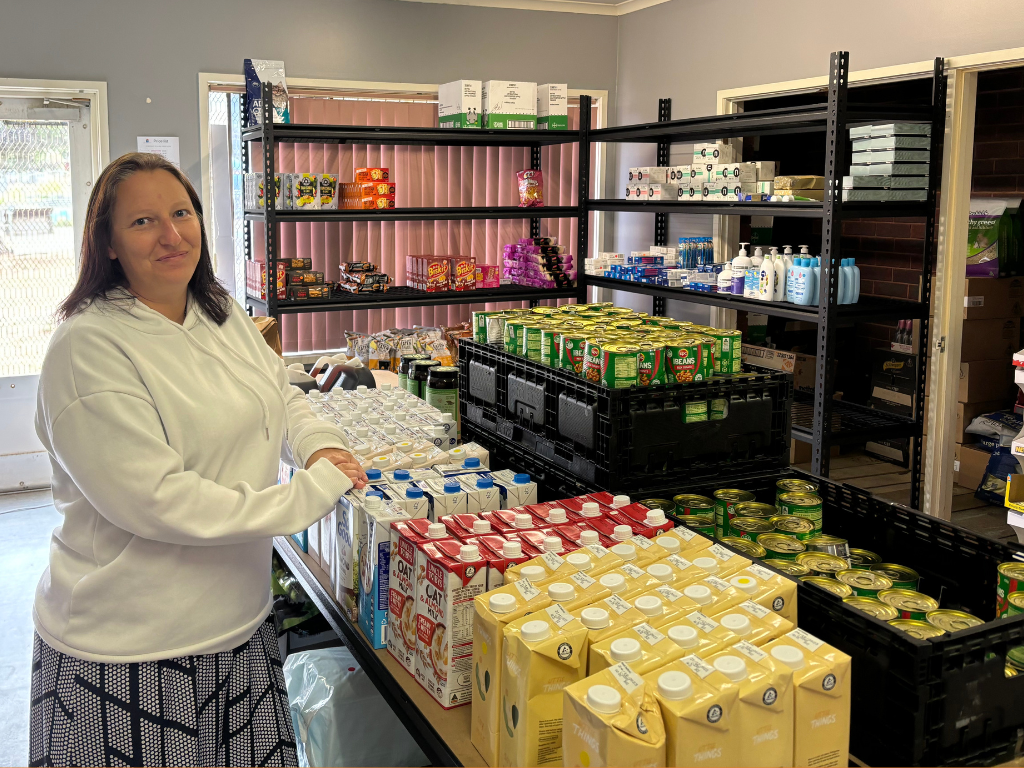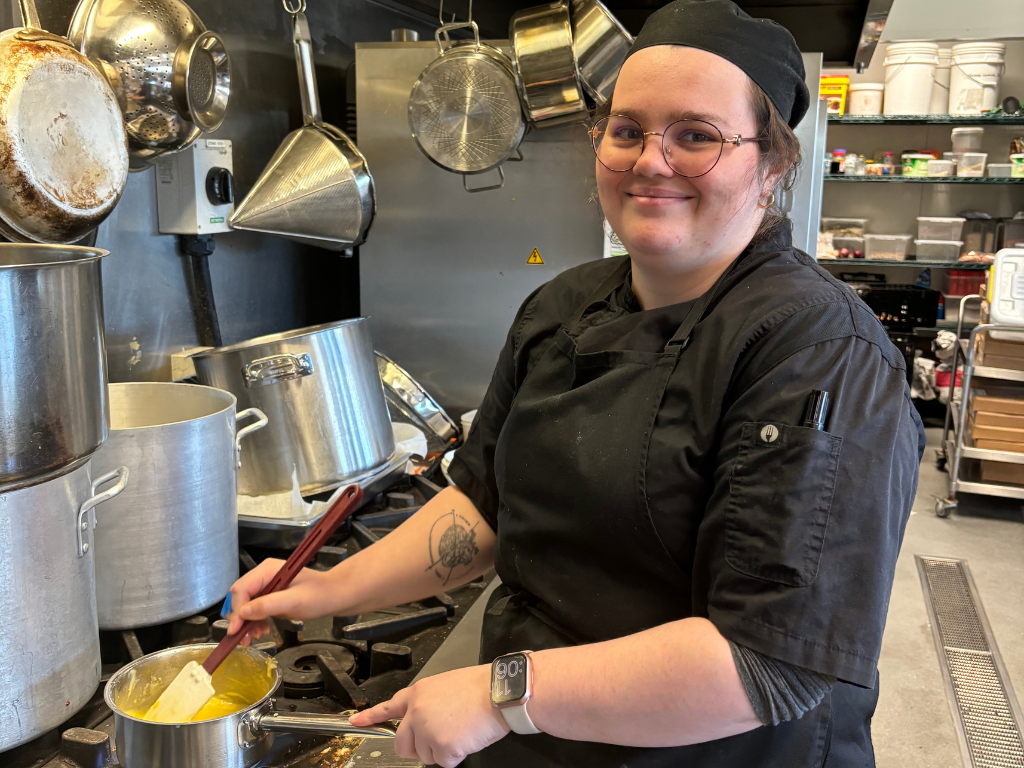Loaves and Fishes is partnering with Clarendon Vale Neighbourhood Centre in a novel food pantry that’s restoring dignity and providing hope to Clarence Plains residents struggling to eat well.
The three-day-a-week Clarendon Vale Food Hub sells a range of discounted food to around 80 people per day who travel from Warrane, Mornington, Glebe Hill and Lindisfarne to shop.
The average spend is about $12 per customer, with shoppers paying from 20 cents to $1 for individual items, and $1 to $2 a kilogram for meat and fruit and vegetables.
Neighbourhood Centre Manager Kristy Leishman said the food hub, which started in November last year, had resulted in a 90 per cent reduction in the number of people seeking free emergency food hampers.
“A lot of people still want free bread, and we are always going to provide emergency food relief for those who need it, but the number of people who used to regularly look for free food provided by Loaves and Fishes is way down,” she said.
“This has given people back their dignity as they contribute to what they get, and are able to choose what they want to eat, rather than being given whatever is available.
“There are many local businesses providing bulk food either free or at discounted prices that we can then divide into kilo packs to sell.
“We were able to start the food hub as a result of a $10,000 State Government grant which enabled us to buy a freezer and convert the former gym into a supermarket.
“We stock mostly healthy fresh fruit and vegetables, grocery staples, hygiene and personal care products, dairy and canned goods.
“The food hub is run by community volunteers, while the cost of power and other related expenses are absorbed out of the centre’s operations budget.”
The neighbourhood centre uses food hub produce to put on a free community meal every Tuesday night attracting an average of 50 people. Loaves and Fishes supports the dinner with donated food and helps with cooking.
“For many of these people, this is the only time they get out of the house,” Kristy said.
Loaves and Fishes General Manager, Aaron Kropf, said the transition from relief to resilience was the key to reducing food insecurity.
“This social enterprise model is sustainable, provides choice and dignity to users, and requires local collaboration and therefore placed-based solutions.”
By Paul O’Rourke
More Stories like this…
Alanna rises above the pain to deliver food and hope
Loaves and Fishes kitchen manager Alanna Hodgetts is an outstanding performer [...]
Short, sharp swim helps nourish our state
Join us in taking a short, sharp swim to mark the [...]
NSW Christian community serving Tassie’s vulnerable
A group of students and leaders from a rural NSW Christian [...]





